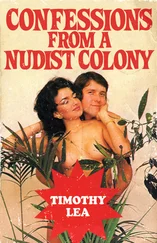Mary Devereux - From Kingdom to Colony
Здесь есть возможность читать онлайн «Mary Devereux - From Kingdom to Colony» — ознакомительный отрывок электронной книги совершенно бесплатно, а после прочтения отрывка купить полную версию. В некоторых случаях можно слушать аудио, скачать через торрент в формате fb2 и присутствует краткое содержание. Жанр: foreign_antique, foreign_prose, на английском языке. Описание произведения, (предисловие) а так же отзывы посетителей доступны на портале библиотеки ЛибКат.
- Название:From Kingdom to Colony
- Автор:
- Жанр:
- Год:неизвестен
- ISBN:нет данных
- Рейтинг книги:5 / 5. Голосов: 1
-
Избранное:Добавить в избранное
- Отзывы:
-
Ваша оценка:
- 100
- 1
- 2
- 3
- 4
- 5
From Kingdom to Colony: краткое содержание, описание и аннотация
Предлагаем к чтению аннотацию, описание, краткое содержание или предисловие (зависит от того, что написал сам автор книги «From Kingdom to Colony»). Если вы не нашли необходимую информацию о книге — напишите в комментариях, мы постараемся отыскать её.
From Kingdom to Colony — читать онлайн ознакомительный отрывок
Ниже представлен текст книги, разбитый по страницам. Система сохранения места последней прочитанной страницы, позволяет с удобством читать онлайн бесплатно книгу «From Kingdom to Colony», без необходимости каждый раз заново искать на чём Вы остановились. Поставьте закладку, и сможете в любой момент перейти на страницу, на которой закончили чтение.
Интервал:
Закладка:
"No, thank ye, mistress," he replied, grinning proudly at the dignity she had bestowed upon his humble abode. "I've that will take me up to Dame Chine, at the Fountain Inn, an' I should be there this very minute, an' not chatterin' here. But I was tired, an' when I came along an' saw old Leet, sat down to rest a bit."
"When are you intending to fetch that pink ribbon you promised me weeks ago, and the lace for Aunt Lettice?" demanded Dorothy, as Mary Broughton stepped over the intervening seats, past Leet, at the oars, with small 'Bitha alongside him, and took her place beside her friend.
"I've both in my pack, up at the hut; I'll bring 'em to the house this week, ye may depend on it," answered Johnnie, as Pashar pushed off the boat, springing nimbly in as the keel left the sand.
"If you do not, I'll never buy another thing from you so long as I live," the girl called back, with a wilful toss of her head, as Leet pulled away with strong, rapid strokes.
"'T is all wrong for two pretty ones like them to be roamin' 'round in such fashion," said Johnnie to himself, as he stooped to take up his pack. Then suddenly, as if remembering something, he turned to the shore and called out, "Shall ye find Master John at home, think ye, Mistress Dorothy?"
Her voice came back silvery clear over the distance of water lying between them. "No; he is up at the Fountain Inn."
"Ah, as I thought," the pedler muttered, with a meaning smile. "I'll just be in the nick o' time."
"What think you it all means, Mary?" Dorothy asked, the two sitting close together in the boat.
"What all means?" echoed Mary, in an absent-minded way, her head turned toward the shore they were leaving, where on the higher land the far-away windows of the Fountain Inn were showing like glimmering stars in the light of the setting sun.
"Why," Dorothy explained, smiling at Mary's abstraction, "all these soldiers coming down here? And Johnnie acts and talks as if he could tell something important, if he chose."
"You know, Dot, we are like to have serious trouble, – perhaps a war with the mother country."
"And all because of a parcel of old tea!" exclaimed Dorothy, with great scorn.
Mary now turned her face in the direction the boat was going, and smiled faintly. "The tea is really what has brought matters to a head," she said. "But there is more in it than that alone, from what I've heard my father say. And there is much about it that we girls cannot rightly understand, or talk about very wisely. Only, I hope there will be no war. War is such a terrible thing," she added with a shudder, "and you know what Moll told us. I almost wish we had not gone to see her to-day."
"I am not a bit sorry we went," said Dorothy, stoutly. "I am glad. What did she say, – something about a big black cloud full of lightnings and muttering thunder, coming from across the sea, to spread over the land and darken it? Was n't that it?"
"Yes, and much more. Do you think she was asleep as she talked to us, Dot? She looked so strangely, and yet her eyes were wide open all the time."
"Tyntie does the same thing at times. She says it's 'trance.' But Aunt Penine always puts me out of the kitchen when Tyntie gets that way, and so I don't know whether she talks or not. I mean to try and find out, if I can, the next time Tyntie gets into such a state."
"Nothing seems strange for Indians to do or to be," Mary said musingly; "but I never heard of such things amongst white people."
"Oh, yes, you did," Dorothy answered quickly. "Whatever are you thinking of, not to remember about the witches? 'T is said they could foretell to a certainty of future happenings. I wish I'd lived in those days, although it could not have been pleasant to see folks hanged for such knowledge. As for Moll Pitcher, – I guess she might have been treated as was old Mammie Redd."
CHAPTER IV
There was a long silence, broken at last by Mary saying, "Perhaps what some folk say of Moll is true, – that it is an evil gift she has. And yet she has a sweet face and gentle manner."
"I wonder if 't is truth, what they say of old Dimond, her father," said Dorothy, her chin supported in one soft palm, while her eyes looked off over the water, motionless almost as the seaweed growing on the scarred rocks along the shore, left bare by the low tide.
"What is that?" Mary asked.
"Why, that whenever there was a dark, stormy night, with a gale threatening the ships at sea, he would go up on Burial Hill, and beat about amongst the grass, to save the crews from shipwreck."
Mary laughed. "What an idea!" she exclaimed. "How could beating the ground about the dead benefit or protect the living, who are surely in the keeping of Him who makes the tempests?"
"I don't know," was Dorothy's simple answer. "Only that is what I've heard, ever since I was a child. And such talk always took my fancy."
"Well, old Dimond doesn't look now as if he could have strength to beat the ground, or anything else. Poor old man, he is very feeble, and I should say 't is a happy thing for him that Moll can come down from Lynn now and then, to attend him."
"Yes," Dorothy assented. Then, with a lively change of tone and manner, "'T was odd, Mary, for her to say that when you left her door you were to see your true-love riding to meet you on horseback."
Mary started, and without answering, turned her head away, while the blood rushed to her lovely face.
"Which was he, sweetheart?" Dorothy persisted teasingly, bending her head so as to bring her smiling face directly under the down-dropped blue eyes, and then laughing outright at the confusion she saw there.
"Which one was it?" she repeated. "You know Hugh Knollys rode down the road directly toward you, and then – "
But Mary's white hand was over the laughing lips and silenced them.
"If your father should hear you talking in such fashion, Dot, I feel sure he would be displeased with me for having gone with you to see Moll." Mary made an effort to look and speak naturally, but her eyes were very bright and her face was still deeply flushed.
Dorothy smiled, and shook her curly head wilfully. "Not he," she said with decision; "leastway, not for long. He is stern enough, at times, to others; but he can never be severe with me."
"Ah, Dot, but you are surely a spoiled child," said Mary, with a fond glance at the winsome face.
Dorothy shrugged her small shoulders. "So Aunt Penine is always saying; but all the aunts in the world could never come 'twixt my father and me."
Little 'Bitha, who had been crooning softly to herself, and improvising, after a fashion of her own, —
"The sea is blue, blue, blue,
The sea is blue, and I love the sea,"
suddenly cried out, "Oh, Dot, look, look! What an ugly fish!"
They all looked, and saw a dead dogfish, its cruel teeth showing in the gaping jaws, go bobbing by, entangled in a mesh of floating seaweed.
"Him look like dead nigger," said Pashar, as he flung a pebble at it.
Old Leet scowled over his shoulder at his lively descendant.
"Dere'll be anudder, an' real true, dead nigger ter keep him company, ef ye don't sit still, an' quit grampussin' 'bout de boat," he growled; and. Pashar became very quiet.
They were now drawing in nearer to the shore, where the strip of sand-beach lay down below the rocky headland, upon the highest point of which stood Spray House, the home of Nicholson Broughton and his daughter Mary.
The house – a low, rambling building, with gabled roof – was perched upon the highest of a series of greenstone and syenite ledges, whose natural jaggedness had no need to be strengthened by art to render them a safe bulwark against the encroaching seas, when the storms flashed blinding mists and glittering spray about the diamond-paned windows.
Читать дальшеИнтервал:
Закладка:
Похожие книги на «From Kingdom to Colony»
Представляем Вашему вниманию похожие книги на «From Kingdom to Colony» списком для выбора. Мы отобрали схожую по названию и смыслу литературу в надежде предоставить читателям больше вариантов отыскать новые, интересные, ещё непрочитанные произведения.
Обсуждение, отзывы о книге «From Kingdom to Colony» и просто собственные мнения читателей. Оставьте ваши комментарии, напишите, что Вы думаете о произведении, его смысле или главных героях. Укажите что конкретно понравилось, а что нет, и почему Вы так считаете.












